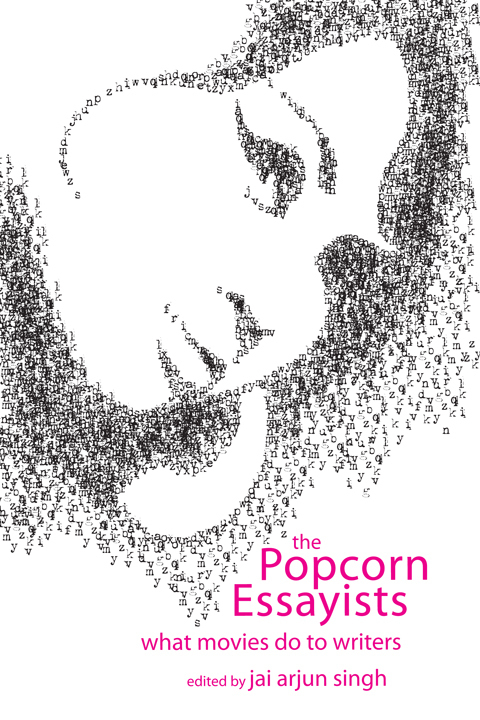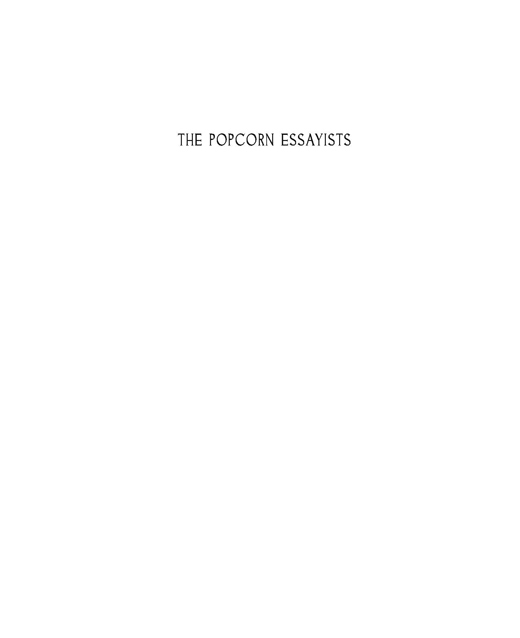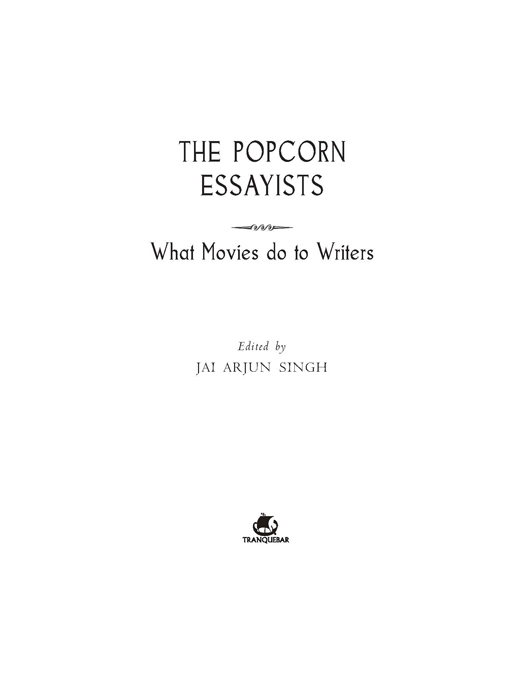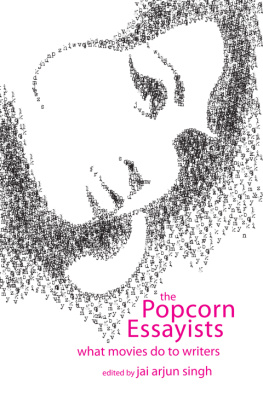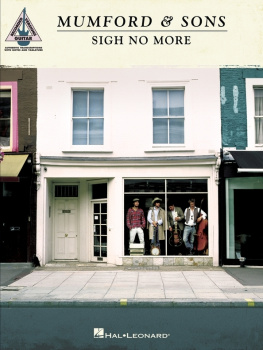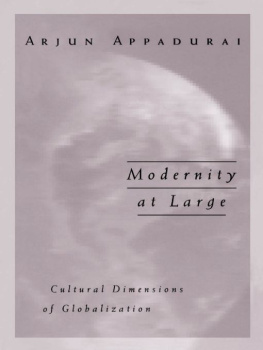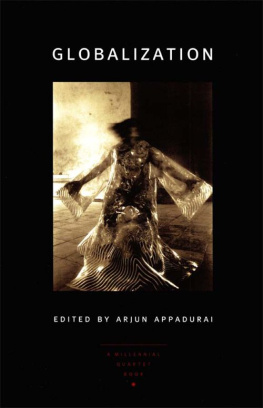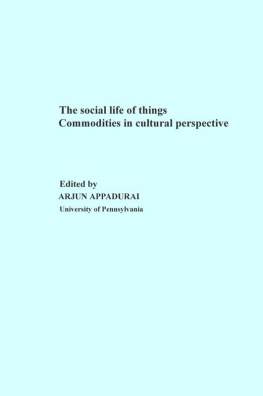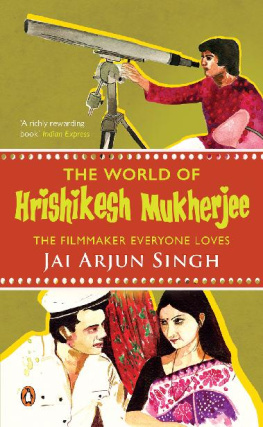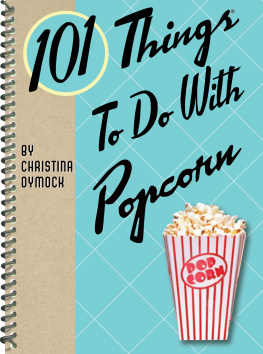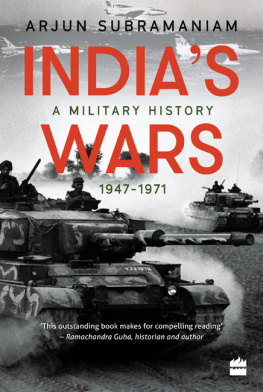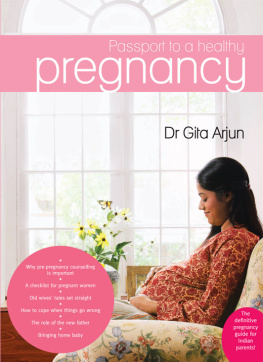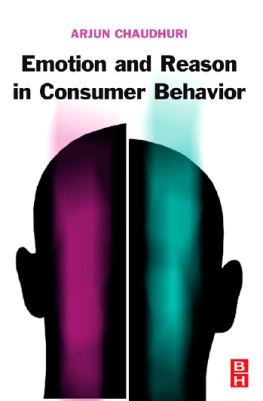TRANQUEBAR PRESS
An imprint of westland ltd
Venkat Towers, 165, P.H. Road, Maduravoyal, Chennai 600 095
No.38/10 (New No.5), Raghava Nagar, New Timber Yard Layout, Bangalore 560 026
Survey No. A-9, II Floor, Moula Ali Industrial Area, Moula Ali, Hyderabad 500 040
23/181, Anand Nagar, Nehru Road, Santacruz East, Mumbai 400 055
47, Brij Mohan Road, Daryaganj, New Delhi 110 002
First published in TRANQUEBAR by westland ltd 2011
Copyright Jai Arjun Singh 2011
All rights reserved
ISBN: 978-93-80658-35-3
Typeset in Venetian301 BT by SRYA, New Delhi
This book is sold subject to the condition that it shall not by way of trade or otherwise, be lent, resold, hired out, circulated, and no reproduction in any form, in whole or in part (except for brief quotations in critical articles or reviews) may be made without written permission of the publishers.
Contents
THE FOOT-WORSHIPPERS GUIDE TO
WATCHING
A MECHANICAL LOVE OR
GAADI BULA RAHI HAI
The starting point for this anthology was a chat I had with Westlands Deepthi Talwar, during which a couple of ideas intersected. I was holding forth on one of my pet peeves: the scarcity of good film essays in India, and the offhand approach to writing about movies in general something that really begins with the minuscule space available for reviews in most of our mainstream media.
Given just three or four hundred words to work with, even the most skilled (or potentially skilled) writer cant do much more than supply a token plot summary and dole out marks to a film. This leads to the formation of bad habits among writers (something I know about from personal experience), misconceptions about the nature and utility of criticism, and a belligerent reading culture based on the dictum that a perspective different from ones own cannot be an honest or well-considered perspective. Looking at message-boards on websites, one regularly finds comments like: Please, Mr Reviewer, spare us the big words. Your job is to tell us a) The plot of the film, b) Whether we should see it by obedient little lambs waiting to be led to the ticket counter if a film is Good or shooed away if its Bad. And waiting to turn into rabid little lambs if it turns out that the review was wrong.
Disagree with a reviewer? Pick your response. You can rationalise that he was paid off by the producer of the film, or by the rival camp. You can resort to that old chestnut from the Inverse Snobs Hall of Fame: This writer is a pseudo-intellectual who has taken the film too seriously. Or that other chestnut, the bane of any honest reviewer: Be objective. In such a reading culture, evaluationthe need to stick a star rating on a film, the need to make a judgment becomes all-important while thoughtful discussion counts for very little.
The point is not that most movie-watchers should be expected to engage with cinema at a deep, cerebral level (thats never going to happen, and fair enough), but that theres a lack of reading options for the few who might occasionally wish to do so. The sort of film writing I like best is the well-written, accessible yet thoughtful personal essay that provides an insight into how a particular person might respond to a filma piece that can be enjoyed regardless of whether you agree with its assessment of a movie, and which reveals something about the writer too. (Asked why she had never written her memoirs, Pauline Kael pointed at the anthologies of her reviews and film essays and said, I think I have.)
Anyway, I was rambling on thus when Deepthi gently steered the conversation towards established authors who dont write about movies professionally but who might feel strongly about a film, genre or film-related experience. This struck a chord. In my experience even literary writers with daunting reputations for seriousnessthe ones whom youd hesitate to prod with a pointy stick at a launch, even if you love their bookstend to reveal a childlike side when you get them talking about their favourite movies. Besides, someone who isnt jaded by watching films for a living would be likely to provide a fresh perspective. Best of all, getting together a line-up of established authors would make my own job as an editor very easy. So I leapt to the task.
Anyone who has commissioned original pieces for an anthology knows that theres an element of haphazardness built into the process. You might begin with an initial list of writers you admireand who you think would be just right for the subjectbut when some of them turn out to be unavailable, the list expands and becomes less discerning; you battle deadlines, compromise. Which is why one of the most satisfying things about this book for me is that the contributors are all writers whose work I have a personal regard for. From Anjum Hasan and Rajorshi Chakraborti, who are among my favourite contemporary novelists, to Musharraf Ali Farooqi, whose English translation of the epic Dastan-e-Amir Hamza was one of my cherished reading experiences of the last few years, to Amitava Kumar, among the most nuanced non-fiction writers around, to Madhulika Liddle, whose blog Dusted Off is full of affectionate and detailed posts about old Hindi movies, theres a very varied line-up of talents here.
The range of topics was equally pleasing. My own taste in movies runs very far and wide, and so it was fun to oversee a collection that includes a tongue-in-cheek subtextual examination of a cult Punjabi film from the 1970s but also includes a piece that contrasts the experience of watching Wim Wenders Wings of Desire with reading Michael Cunninghams White Angel and much else in between. Hindi film noir starring Dev Anand? Check. A Finnish version of Crime and Punishment? Check. Buster Keaton, Orson Welles and Kader Khan in the same essay? Oh yes. (I wont tell you which one.)
We decided to open with Manjula Padmanabhans Jellyfish because it raises the sort of questions that would be asked by any movie buff who is just starting to take the medium seriously. How does one read a film? How do you distinguish between High Art and Low Art? How are the darn things put together? I love her perplexity about the dubbing process in old Hindi films, often done months after the shooting was finishedhow do actors recapture the immediacy of their feelings when they did the shot? Its one of those thoughts that gnaw at the fringes of a film buffs consciousness but are rarely articulated.
Some of these essays provide a sharp sense of how movies intersect with the lives of their viewers, supplying them with a cultural mythology. Amitava Kumar had told me a long time ago about his interest in Satya and the actor Manoj Bajpai, but I was moved to learn from his essay that he considered himself a citizen of the world created by Bollywood, and that he had once, during an emotional time in his life, resolved never to marry anyone who didnt understand the lyrics of the song, Tu hee re. On the other hand, Anjum Hasan came to Finland and its peopleincluding her husband Zacs familythrough the movies of the Kaurismki brothers, a reminder of how cinema, like literature, can help us navigate an unfamiliar world. (I approve of the solitariness. Telmas partner, Jori, says hello but not much else and I am thrilled. Exactly like M in Man without a Past.)
